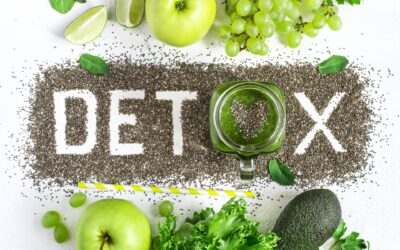Environmental Toxins
Everyone lives on the same planet. We all share the same air, water, and soil. Did you know that these shared resources may be a source of toxins that negatively affect our health?
The Centers for Disease Control (CDC) estimates that more than 400 environmental toxins can be found in human blood and other fluids. Many of them can negatively affect our health. Long-term exposure can result in a variety of health issues, including respiratory diseases, cancer, and hormonal imbalances. Recent research indicates that exposure to certain environmental toxins can also negatively impact mental health. It’s impossible to eliminate these contaminants from our homes, food and water sources, and air. However, there are things we can do to reduce our exposure and eliminate toxins from our bodies faster.
How We Help
Environmental toxins are all around us. We can’t avoid them completely, but we can improve our bodies’ ability to eliminate them. Ready to up your defenses against environmental toxins? Revolution Gut Health can help. Schedule a health consultation today to learn more about our services.
Disclaimer: The health information on this site is provided for general informational and education purposes only and is not a substitute for professional advice. Accordingly, before taking any actions based upon such information, we encourage you to consult with the appropriate professionals. The use or reliance of any information contained on this site is solely at your own discretion. Revolution Gut Health does not claim to heal, treat or cure any of the conditions mentioned.
What Are Environmental Toxins?
Environmental toxins are gasses, microscopic organisms, and other substances with the potential to compromise human health. They may be man made or come from nature. No matter their origin, we should limit our exposure.
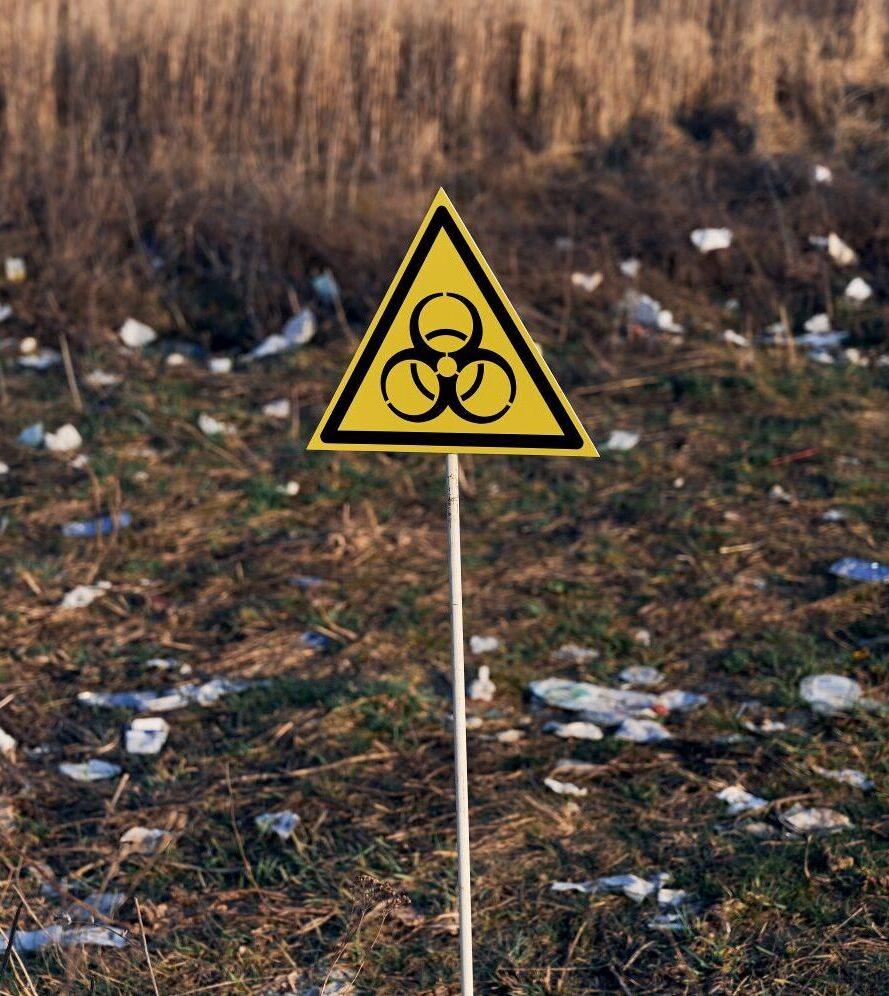
Types of Environmental Toxins
Environmental toxins come in many forms and feature distinct impacts on humans. Experts have categorized these contaminants based on their health effects. The categories are carcinogens, mutagens, allergens, neurotoxins, and endocrine disruptors.
Carcinogens
Carcinogens are substances that can increase someone’s risk for cancer and also cause cancer in and of themselves. They can interact with other cancer risk factors, especially when exposed to a high amount or over a long period of time.
One of the most common carcinogens humans expose themselves to is alcohol. In fact, alcohol is a Group 1 carcinogen, meaning it presents the most severe risk of cancer, especially bowel and breast cancers.
Mutagens
Mutagens are substances that increase the risk of genetic mutation. These toxins may also be carcinogenic, though not all carcinogens are mutagens.
Some mutagens can lead to heritable mutations, meaning people can pass them on to their children. Additionally, the fetuses of pregnant people exposed to mutagens can develop abnormalities that may last a lifetime.
Allergens
Allergens are among the most well-known class of environmental toxins. When inhaled, these substances can cause sinus allergies and allergic reactions. Rashes can also be symptomatic of allergen exposure.
Tobacco smoke, a carcinogen, is also an allergen. It can increase the risk of certain allergies in people who smoke or are exposed to secondhand smoke.
Neurotoxins
Neurotoxins are environmental toxins that exclusively affect the human nervous system. They can cause temporary effects (e.g., poisoning). Or neurotoxins can contribute to long-term and sometimes fatal health conditions.
A neurotoxin some readers may be familiar with is sarin. Also known as nerve gas, this highly potent toxin can cause seizures, hypothermia, and even death.
Endocrine Disruptors
The endocrine system controls the body’s production and release of hormones. Endocrine disruptors, then, are substances that interfere with these processes. As a result, they may affect childhood growth and development and women’s health.
Many endocrine disruptors are found in plastics. For example, bisphenol A (BPA) and polychlorinated biphenyls (PCB) are endocrine disruptors in common household items like food storage containers and paints.
Environmental Toxins Examples
It’s nearly impossible to escape the effects of environmental toxins. However, education on the common types of toxins we’re exposed to daily can help protect our health.
Toxins in Water and Food
Many environmental toxins we ingest come from our food and water sources. The accumulation of pesticides used in conventional agriculture can lead to a variety of health issues, including hormonal disruptions and an increased risk of cancer. Common water and food toxins found during environmental toxin testing are:
- Arsenic
- Atrazine
- Dioxins
- Lead
- Mercury
- PFAs (perfluoroalkyl and polyfluoroalkyl substances)
Lead exposure has been linked to cognitive deficits in children, and exposure to pesticides has shown an increased risk of neurological disorders like Parkinson’s Disease.
Household Toxins
From the products we buy to the air we breathe, dozens of environmental toxins circulate in our homes. Some of the most well-known and prevalent environmental toxin examples found in household products include:
- Asbestos
- BPA
- Phthalates
- Radon
- VOCs (volatile organic compounds)
Air Toxins
Air pollution is among the most widespread environmental pollutants. It originates from automobile emissions, industrial processes, and domestic activities. Long-term exposure to air pollutants has been associated with respiratory problems, cardiovascular disease, and premature death. Here are some air toxins to know:
- Cigarette smoke
- Ground level ozone
- Noxious gases
- Particulate matter (e.g., exhaust)
Looking to Reduce Your Exposure to Air Toxins?
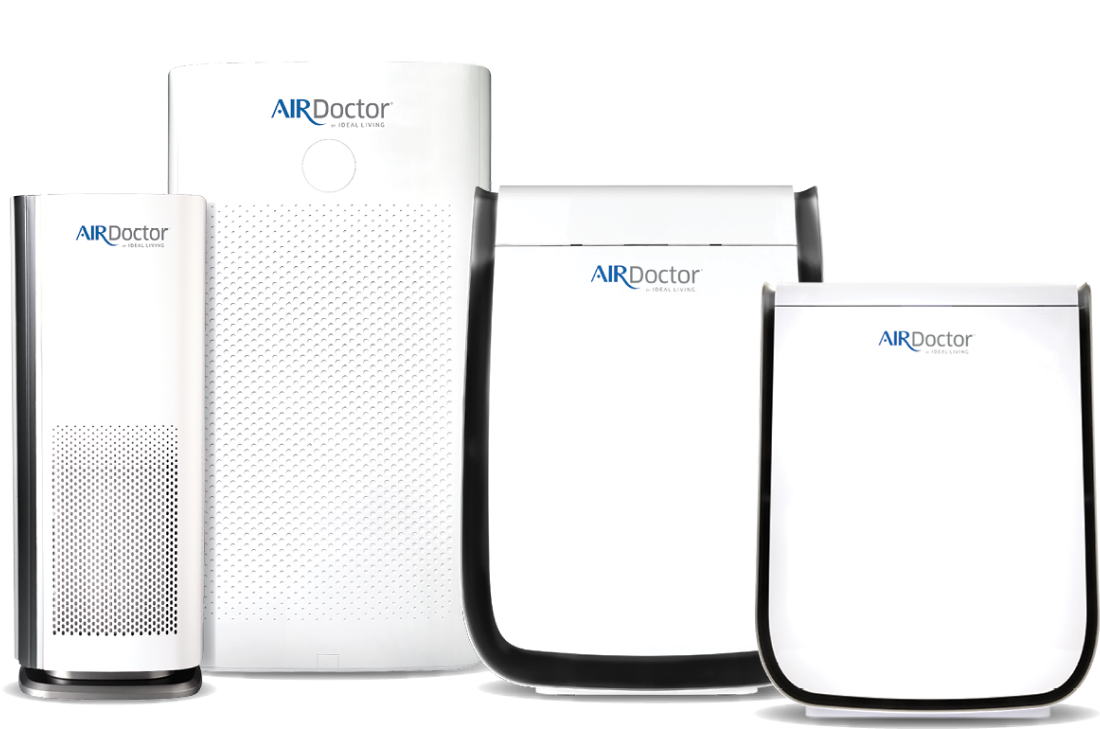
Environmental Toxins and Health
Environmental toxins kill more than 8 million people annually. Meanwhile, air toxins, in particular, contribute to rising rates of respiratory infections, certain cancers, and cardiovascular disorders. Each year, approximately 100,000 people die prematurely of these conditions alone.
Researchers are starting to uncover new health issues from environmental toxin exposure. For instance, neurotoxins like the ones we mentioned earlier may impact the development of neurodegenerative disorders like Parkinson’s and Alzheimer’s.
Common Misconceptions About Toxins
One of the biggest misconceptions about toxins is that they’re all sourced from pollution. However, many environmental toxins are nature-made and can be just as harmful, if not more so.
Another common myth is that people are safe from environmental toxins inside their homes. However, the Environmental Protection Agency has found that some pollutants are two to five times higher indoors than outdoors.
Finally, it is untrue that exposure to any level of toxins will harm someone’s health. Depending on the body’s ability to detoxify, acute exposure could be harmless. Long-term exposure or exposure to large quantities can be the real danger, especially if the body’s detoxifying organs are sluggish.
Have A Question?
Contact our team for a FREE discovery call.
Not accepting new patients at this time
The Function of Detoxification
One reason the body can handle exposure to small amounts of toxins is our natural detoxification system. Our bodies detox primarily through the liver, kidneys, lungs, and skin. The digestive system also plays a role.
We breathe out toxins with our lungs and sweat them out through our skin. The liver and the kidneys work together to break down and eliminate toxins, too. These detoxification organs carry the majority of the burden for this work.
Let’s use a well-known toxin to explain how the detox process works. When someone drinks alcohol, some of this toxin gets eliminated through the breath and sweat and, sometimes, through vomit.
The majority (90% of alcohol), however, enters the liver. The liver uses specialized enzymes to break down alcohol into compounds the body can eliminate (e.g., water and carbon dioxide).
While the liver breaks alcohol, the kidneys filter it from the bloodstream. These organs then send the broken-down toxin to the urinary tract, where it is eliminated through urine.

Reducing Environmental Toxin Exposure
Again, there is no way to avoid environmental toxins completely. The best strategy is to reduce our exposure so that the body can eliminate them more effectively. Here are our tips for doing just that.
Quit Smoking
Tobacco smoke is not just bad for the smoker’s health. It can also impact the health of others. Still, smokers are exposed to a high volume of carcinogenic toxins, increasing the risk of cancer and other health complications.
Eat Organic Foods
Organic foods are required to be grown without synthetic pesticides, fertilizers, and antibiotics. These products may still use these products, but they must have ingredients derived from natural sources.
Many people report that they can’t afford the added cost of organic foods. However, local farmers are often willing to sell to the community and provide better rates. Always wash all produce to eliminate trace pesticides or fertilizers on the surface.
Drink Clean Water
We are lucky to live in a country with one of the safest drinking water supplies worldwide. Still, there are some things people can do to reduce their exposure to water-borne toxins even further.
For example, consider installing a whole-home water filter. Also, to reduce exposure to heavy metals in drinking water, always let the tap run for a few seconds before drinking.
Looking to Upgrade Your Water?
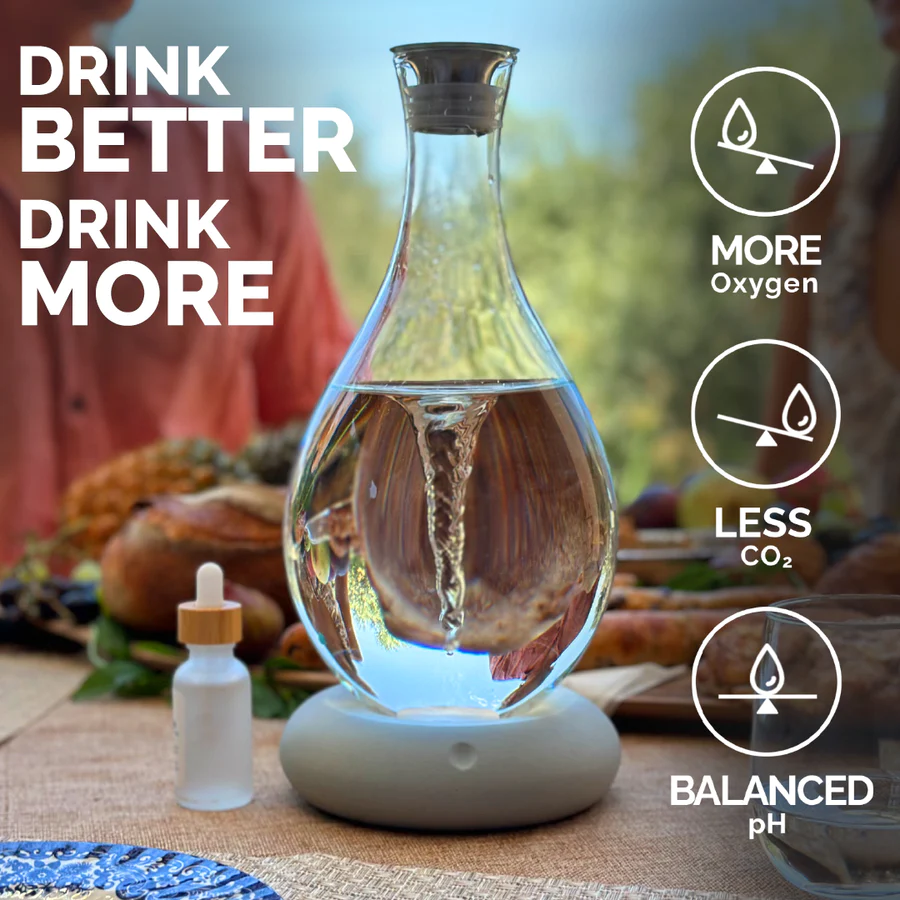

Decrease Plastic Use
Plastic is a source of endocrine disruptors like BPA. We get exposed to this toxin in many ways, including via household products like food storage containers, plastic wrap, and water bottles.
Switch to glass or aluminum when possible. Also, avoid applying heat or extreme cold to plastic items, as this may increase the rate of exposure to this toxin.
Improve Indoor Air Quality
Improving indoor air quality can greatly reduce our exposure to toxins. The EPA recommends treating mold and asbestos, changing air filters frequently, and using house plants for safer indoor air.
Switch to Fragrance-Free Products
Fragrances are volatile organic compounds, common household toxins that can irritate the eyes and cause headaches. Switching to fragrance-free personal care and cleaning products can reduce exposure to these toxins.
Enhance Detoxification Pathways
Even all these tips can’t eliminate toxins from someone’s life entirely. Supporting the body’s natural detox pathways offers added protection. The following lifestyle habits can help with that:
- Eat a nutritious diet low in processed foods and high in antioxidants
- Drink water throughout the day to stay hydrated
- Improve gut health for optimal immunity
- Get plenty of sleep
- Manage stress levels
- Exercise regularly
- Limit alcohol and caffeine
Finally, consider incorporating supplements. They can support the organs responsible for detoxing toxins. Supplements also provide nutrients for people who do not have the time or can’t afford an optimally nutritious diet.
Additional Resources
Heavy Metals in the Brain: Toxicity and Neurological Symptoms
Our bodies are made up of metals and minerals. However, when the immune system does not work properly, metals begin to displace minerals. They can then build up, leading to heavy metal toxicity and neurological symptoms. For example,...
Heavy Metal Detox for Kids
It is common for children to experience symptoms that traditional healthcare professionals cannot explain. Parents looking for answers may want to consider a heavy metal detox for kids. Heavy metals are toxins that exist all around us. They can be...
Ionic Foot Detox: Does It Work?
The ionic foot detox soak is a popular detox treatment that aims to detoxify the body by immersing the feet in a basin filled with warm water and a specialized blend of natural ingredients. It has gained traction in the wellness community due to...
Detoxification Essentials: Selecting the Right Binders
Our bodies are constantly bombarded with toxins from various external sources, such as pollutants, processed foods, and even the air we breathe. Toxins negatively impact our health, leading to fatigue, digestive issues, and even chronic diseases....
Detox Foot Soak
Are you feeling stressed, tired, or overloaded with toxins? A detox foot soak rejuvenates your body and enhances your overall well-being. The ancient practice of a detox foot soak has gained popularity recently. Detox foot soaks offer a natural and...
Detox Tea
Detox teas have gained popularity in recent years for their supposed health benefits. People use these herbal teas to cleanse their bodies and improve their health. But what exactly is a detox tea, and does it work? This article will explore...
Detox vs Cleansing: What’s The Difference?
The goal of detoxing and cleansing is to eliminate harmful and unwanted toxins from the body. Detox methods are comprehensive approaches to maintaining the long-term detoxification and health of the whole body. Cleansing focuses on quick and...
How to Detox Heavy Metals From The Body
Wondering, "How to detox heavy metals from my body?" Ridding the body of heavy metals is as simple as making a few lifestyle tweaks. The best heavy metal detox involves reducing environmental exposure, opening up drainage pathways, making dietary...
Foot Detoxing: What Is It and Does It Work?
Foot detoxing has recently gained popularity as a way to cleanse the body and improve overall health. Advocates claim that foot detoxing eliminates toxins, leading to various health benefits. Understanding what foot detoxing is gives patients a...
Unlock a healthier you today!
Take the first step towards a happier, healthier life with our FREE discovery call.
Not accepting new patients at this time

